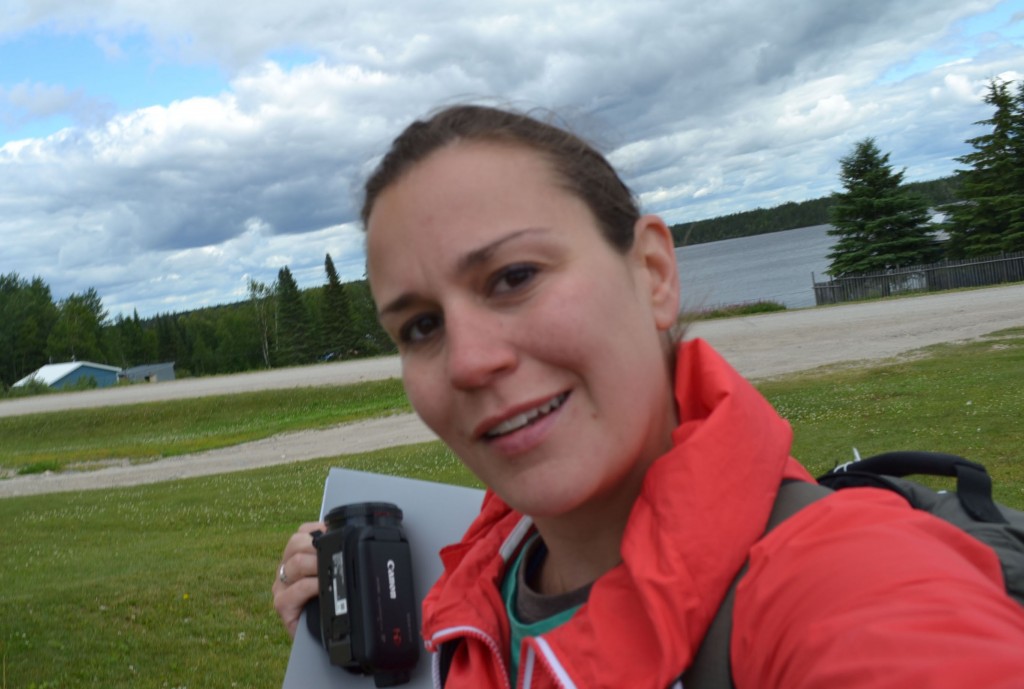

Sunny Freeman’s first hands-on reporting experiences were here at UBC’s School of Journalism. During her time at the j-school she interned at the Vancouver Sun and when she graduated in 2008, she landed a year-long internship at the Toronto Star.
From there Freeman moved to The Canadian Press where she worked her way up from an intern to a full-time reporter.
Freeman now works as the national business reporter at Huffington Post Canada.
Tell us about your current role at Huffington Post Canada.
My focus is on business and economics stories, but because we are HuffPost, I get to focus on stories that are a little off the beaten path or underreported in other media outlets. I am encouraged to think outside the box when it comes to business news. “When the rest of the media zigs, we zag,” is the mantra I am told to follow.
We try to take a diverse storytelling approach, so I also shoot video and pictures in addition to writing text stories.
How did your j-school experience help you transition into a career in journalism?
The connections I met through the school, and the internships the professors helped me land, were invaluable in terms of getting my foot in the door. On top of that, I got a thorough grounding in what it takes to become a successful, well-rounded journalist — from old fashioned shoe-leather reporting and crafting narratives, to multiplatform storytelling and technological savvy.
Of the lessons you learned at UBC, which has been the most valuable?
UBC was very progressive in terms of teaching the importance of multiplatform reporting when many other j-schools were still dividing students into streams. My training in broadcast, web and print skills was instrumental in landing a job at CP. As a journalist at a wire service, you are backpack reporter extraordinaire – thrown into any situation and expected to produce video, radio and print stories. I am also doing that a lot on bigger projects in my current role.
What’s been the piece of journalism you’ve produced of which you’re most proud?
My ambitious attempt to tell the story of resource development and challenges to building economies on reserves in Canada landed me a Canadian Association of Journalism nomination for investigative reporting in the online media category. It was also one of the feature stories chosen for the front page of the World Post. I was able to share the story of First Nations grappling with the pros and cons of resource development with readers from around the world.
I doggedly persuaded members of the Matawa Tribal Council that I should be allowed to visit some of the communities closest to Ontario’s Ring of Fire, which was thrust into the news as a campaign issue in the province’s most recent elections. I was the first journalist allowed into some of the most remote reserves in Canada before other outlets were really talking about it.
After months of trying, I was finally authorized to spend time in the communities. I attended the annual chiefs’ meeting in Long Lake #58, where I spoke with provincial politicians, chiefs, elders and community members and took in as much as possible to try and get an in-depth understanding of the issues facing the community in just a few days. I then moved further north, to Webequie, a fly-in only reserve closest to the Ring of Fire. I fished, dined and square danced with members of the community. I was on my own with a video camera, recorder and notepad throughout my journey.
The experience was incredible, I was able to understand issues from a perspective few Canadians ever witness. I tried my best to honour those people by telling their stories in a compelling, insightful and compassionate way, while remaining committed to objectivity. I set out to shed light on the complexities of resource development on First Nations land for average readers and am proud of the attention, engagement and reach the stories had. I hope I was able to change some minds and for that I am proud and so grateful to HuffPost for giving me the chance to chase this important story.
Would you recommend the j-school to aspiring journalists? If so, why?
100%! There is a debate about whether you have to go to j-school to be a journalist, but in this extremely competitive job market, a young journalist has to do everything she can to set herself apart. UBC gave me the training to feel as comfortable and confident as possible when I made it into my first newsroom after UBC helped me find a way into that newsroom in the first place.


